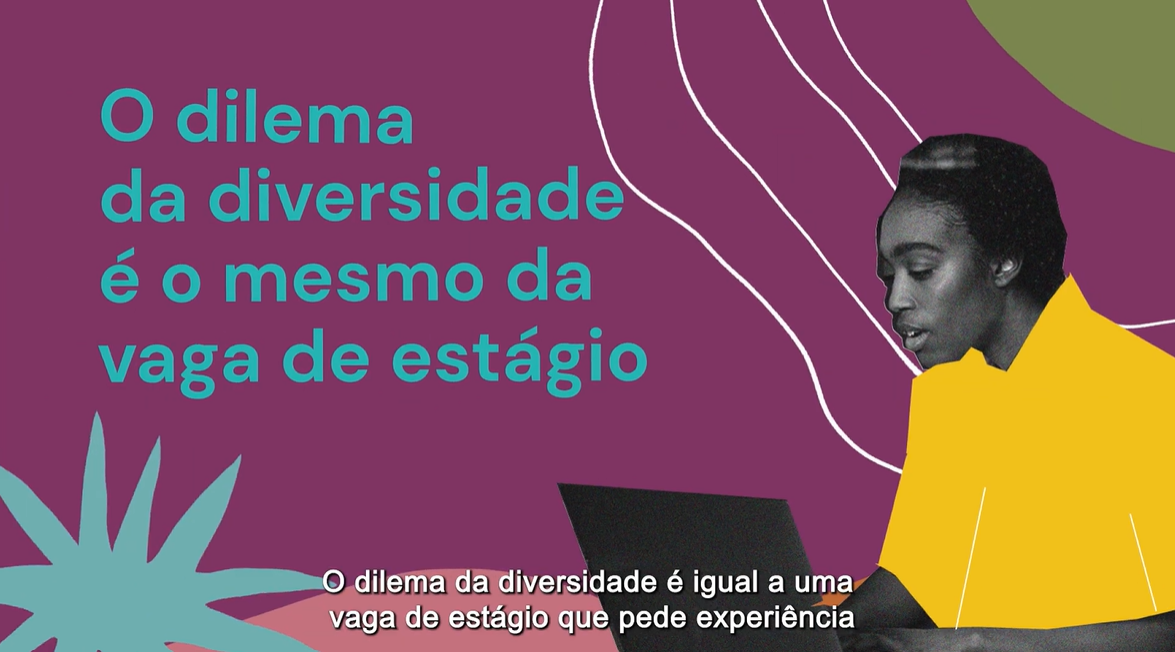- The digital toolkit consists of an ebook, a podcast series, and a video manifesto aiming to clarify concepts and encourage companies to create environments of diversity in the workplace, supporting more women, LGBTQIAP+, black, indigenous and people with disability in their frames.
- It contains tips and guidelines on creating policies for welcoming and retaining people in the teams and the experiences and challenges of companies that experienced transformations in the workplace.
Diversity is a theme that occupies more space in publicity, politicians and corporate addresses, classrooms, and journalistic guidelines each time.
But how do you take real action? How do we convert themes to working policies? Include, insert and accept the broad and diverse range of people who coexist in the society, with respect and opening to welcome ideas, perspectives, and many different cultures can not be a desire but a requirement. However, it presupposes paradigms overturns not always straightforward incorporated.
Olabi has extensive experience in consulting and actions to create more inclusive environments in tech companies in Brazil, like Accenture, Google, Microsoft, Schneider Electric and ThoughtWorks. They now turn their acquired knowledge into a vital toolkit.
Olabi’s digital toolkit aims to guide and help CEOs, managers, administrators and human resource leaders to adopt policies focused on incorporating diversity in their companies. The toolkit is freely available on the website and includes a podcast, a video manifesto and the Diversity & Inclusion Experiences ebook. Unfortunately, despite the English subtitle in the video manifesto, the content is available only in Portuguese.

The ebook has a glossary translating and clarifying terms and concepts related to the theme and a list of books, movies and podcasts on the subject. Furthermore, it delivers tips and practices shared by leaders from companies with a diversity of people in their frames.
“We are planting one seed. We want to encourage companies to ramp up diversity in their workplaces, not as a discourse, but as a permanent policy”, explains Silvana Bahia, co-executive director of Olabi. “At the same time, we bridge local public policies and good practices in organisations”.
“Far from being a definitive guide or manual, the toolkit we carefully produced and provided for free is just one step. We want to open discussions and engage professionals thinking and acting to transform better a reality that deserves urgent attention, “resumes Gabriela Agustine, co-executive director of Olabi
Diversity in teams – in gender, breed, class, sexual orientation, age, regionality and portability in disability aspects – features gains at many levels, point you interviewed organisation leaders. But, primarily, a diverse team usually provides innovative and assertive new solutions for old and new problems. Furthermore, collaborators working in an organisational environment with empathy, dialogue and acceptance better commit to the job as a whole.
But the solution does not simply rely on hiring professionals with a diverse profiles. Instead, an organisation needs an open and permanent reception, inclusion, qualification and retention policy. And this includes selection processes aimed at people with specific characteristics, focusing on analysing candidates’ behavioural skills more than their formal education. In addition, team training provisions need to supply educational gaps while valuing multidisciplinary trajectories. This policy targets the brutal proper education access inequality in Brazil. For example, data from the British Council (2020) point out that only 5% of Brazilians speak English, and only 1% are fluent. And those are just some of the actions that can contribute to more inclusive policies in a corporate environment.
In an economically unequal country with a racist, sexist and LGBTphobic background like Brazil, talking about inclusion is not about numeric minorities but on the contrary. According to a federal survey from 2019 (PNAD), 56.2% of the 213 million Brazilian inhabitants consider themselves brown and black, and 1.1% yellow or indigenous. At the same time, and according to IBGE (2018), blacks and browns (54.9% of the workforce) occupied only 29.9% of managerial positions.
Concerning gender inequality, women are about 51.8% of the population, while men correspond for 48.2% (PNAD 2019). The immediate problem is that women will have a payment of 33.3% less than a man hired for the same position. Furthermore, data from 2016 show women occupied only 39.1% of managerial positions. Not over, the salary gap between white men and one black woman can go up to 159%. In cases where both perform the same function and have the same qualification, the gap is 44%.

The population with a disability is around 12.5 million Brazilians (6.7% of the people) declared having great or total difficulty seeing, hearing, walking or climbing steps, or possessing a mental or intellectual disability.
More than creating alternatives, Olabi is helping to fight institutional racism in Brazil on different levels. Olabi Executive Director Gabriela Agustine is a GIG co-founder member. What makes us so proud of our network’s work around the world! Follow Olabi on Flickr, Medium, Facebook, and Instagram to know more. Unfortunately, most of the content is in Portuguese. But there are many translation tools available online to help!


